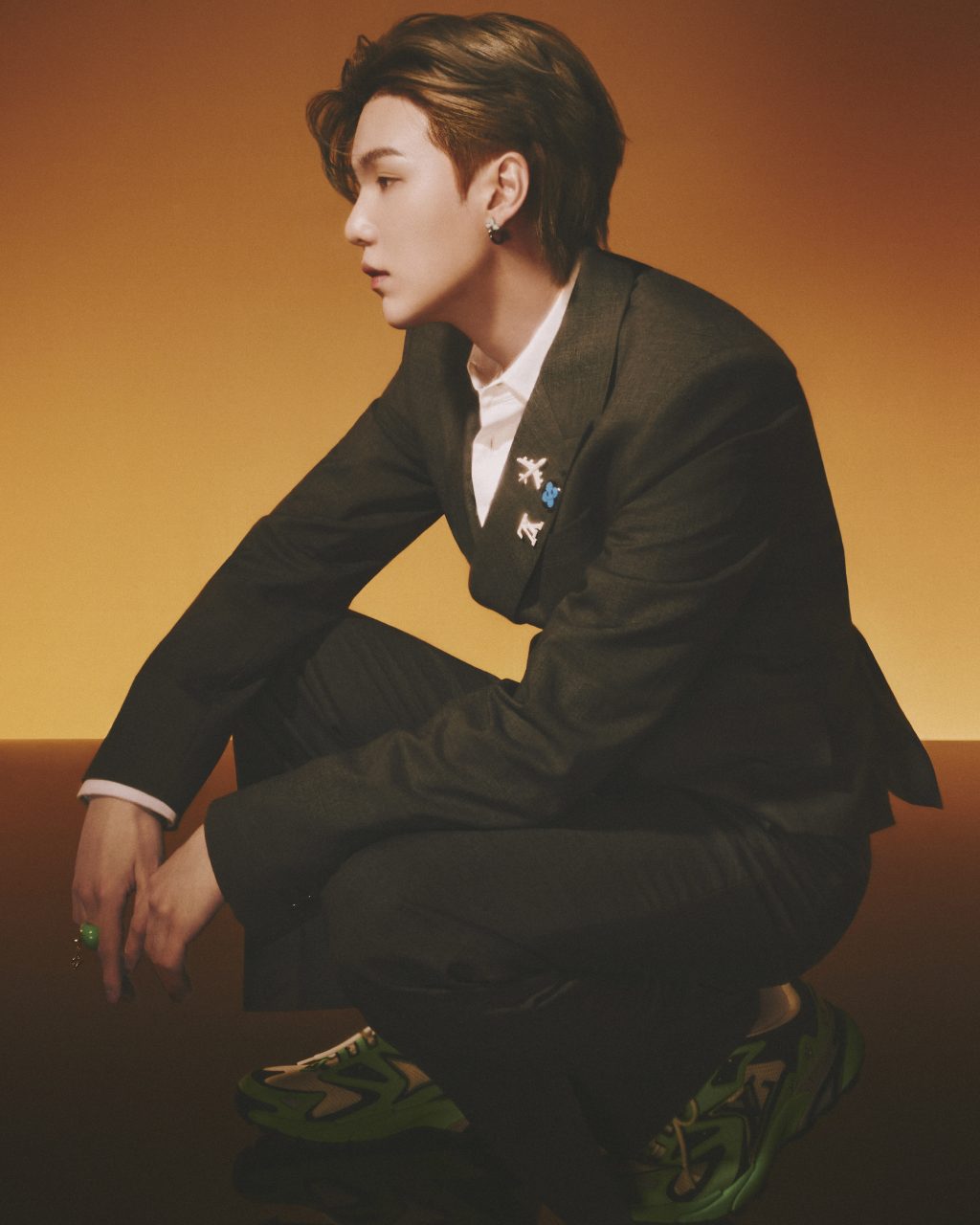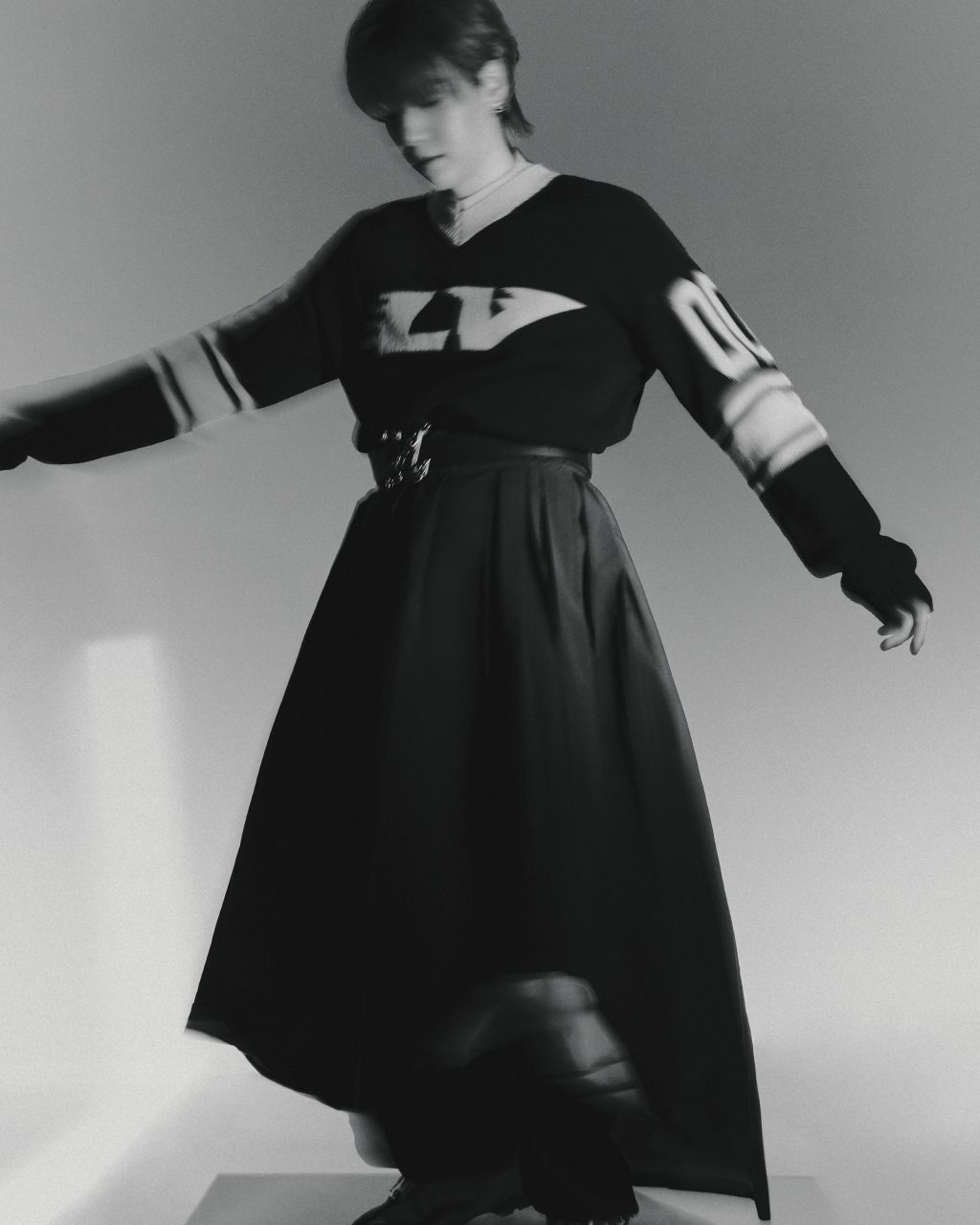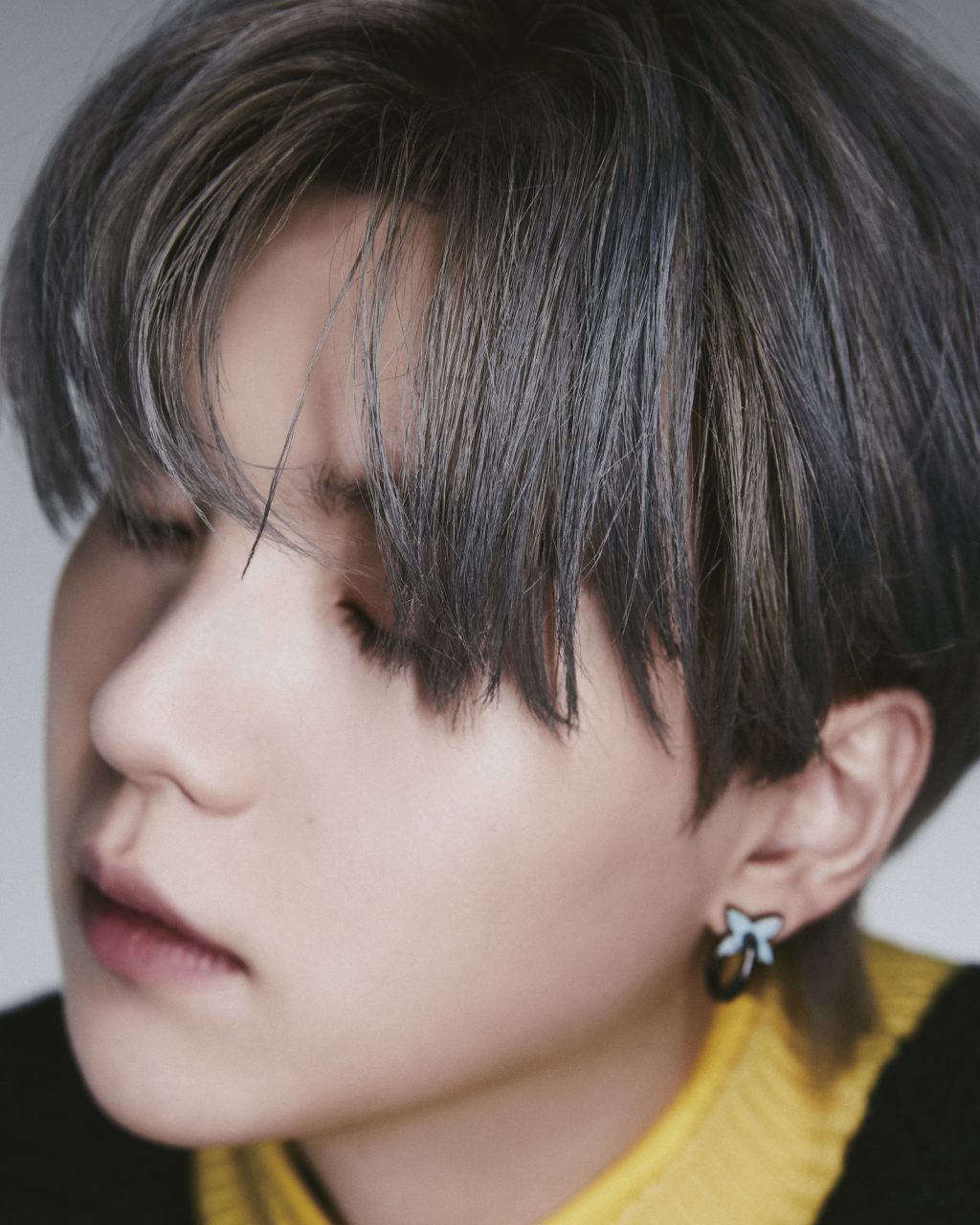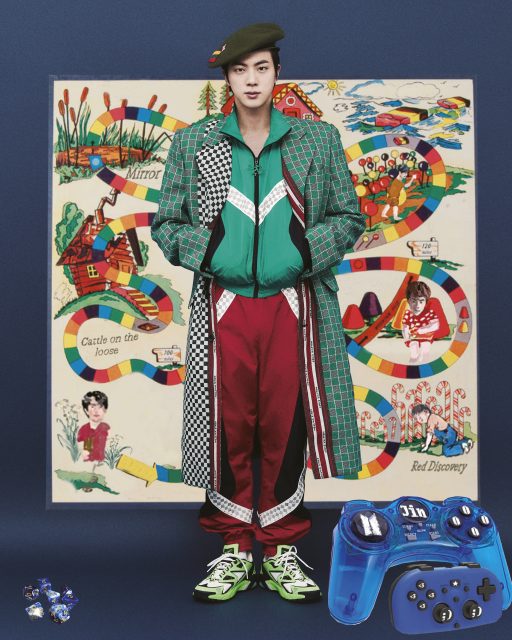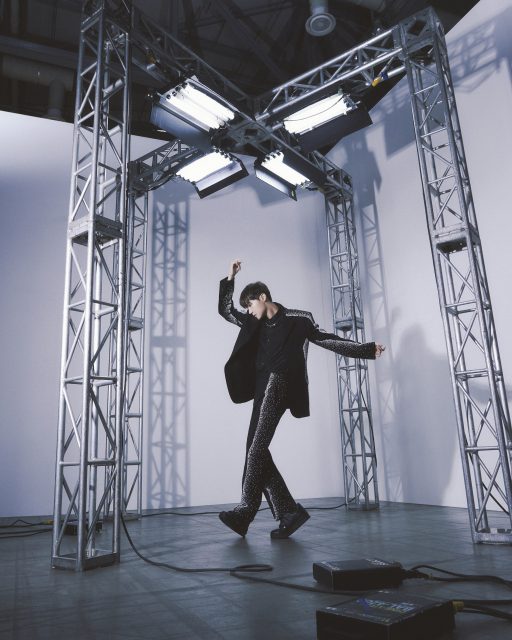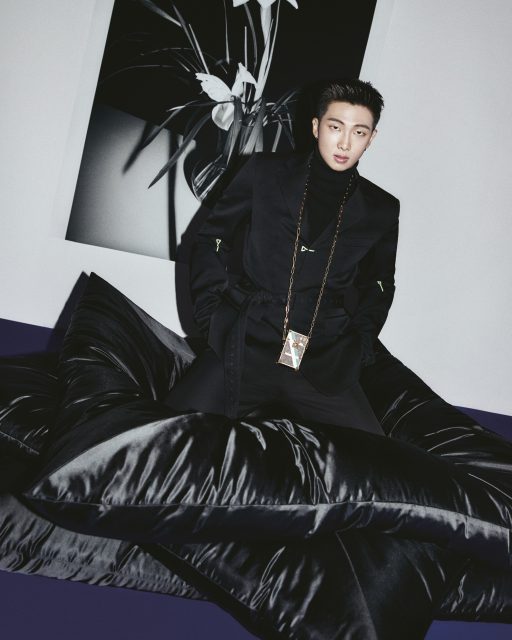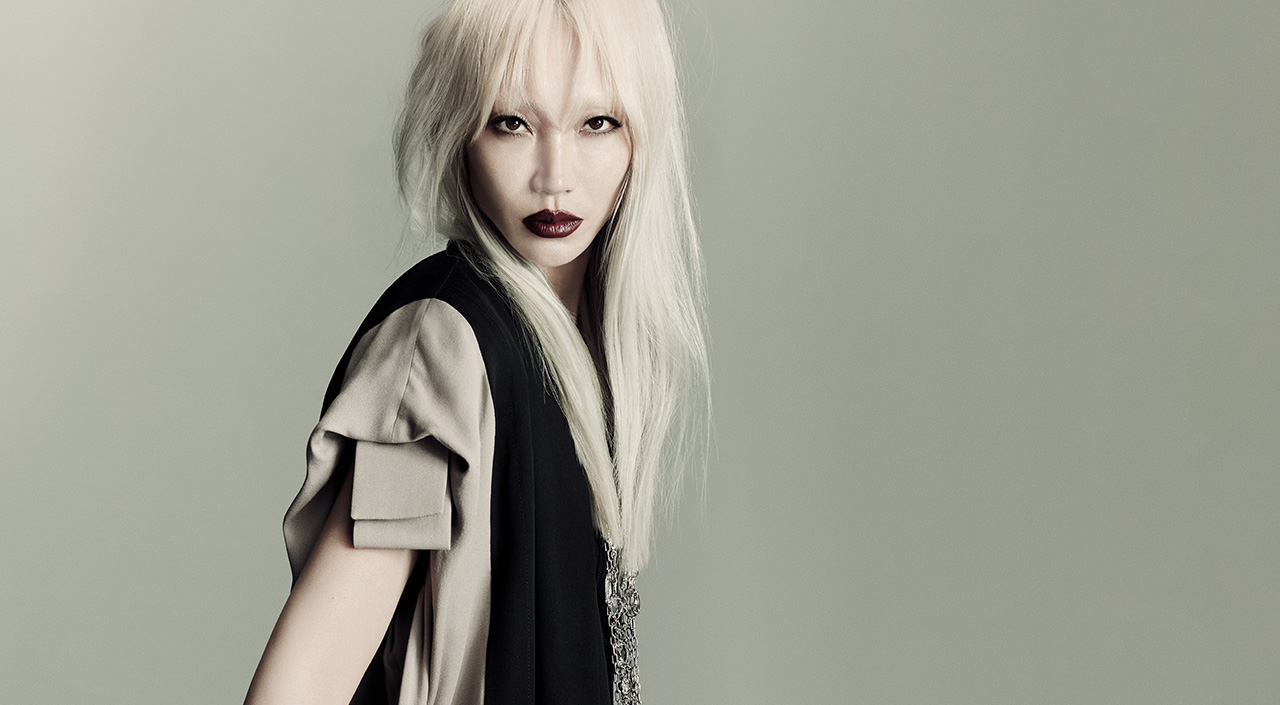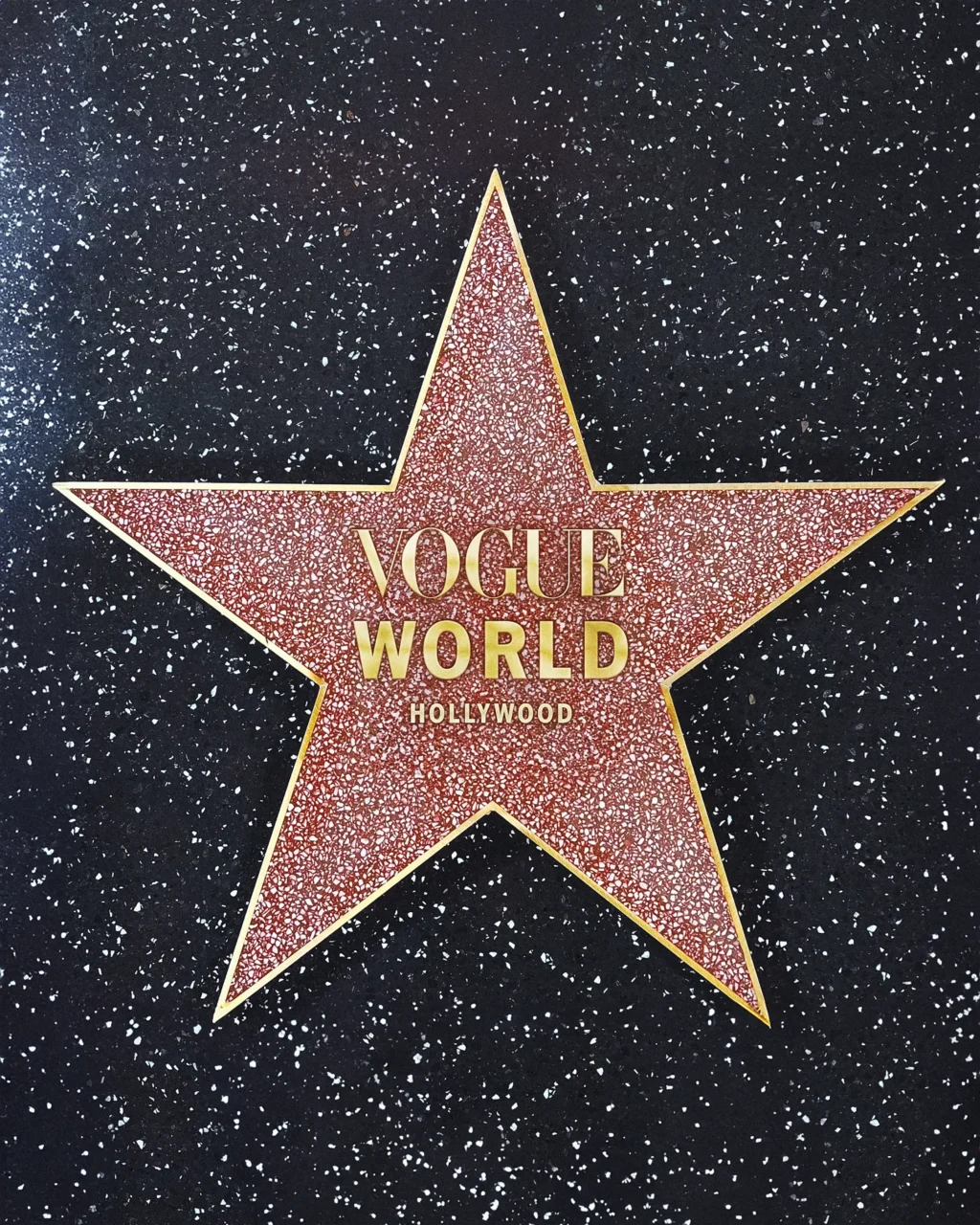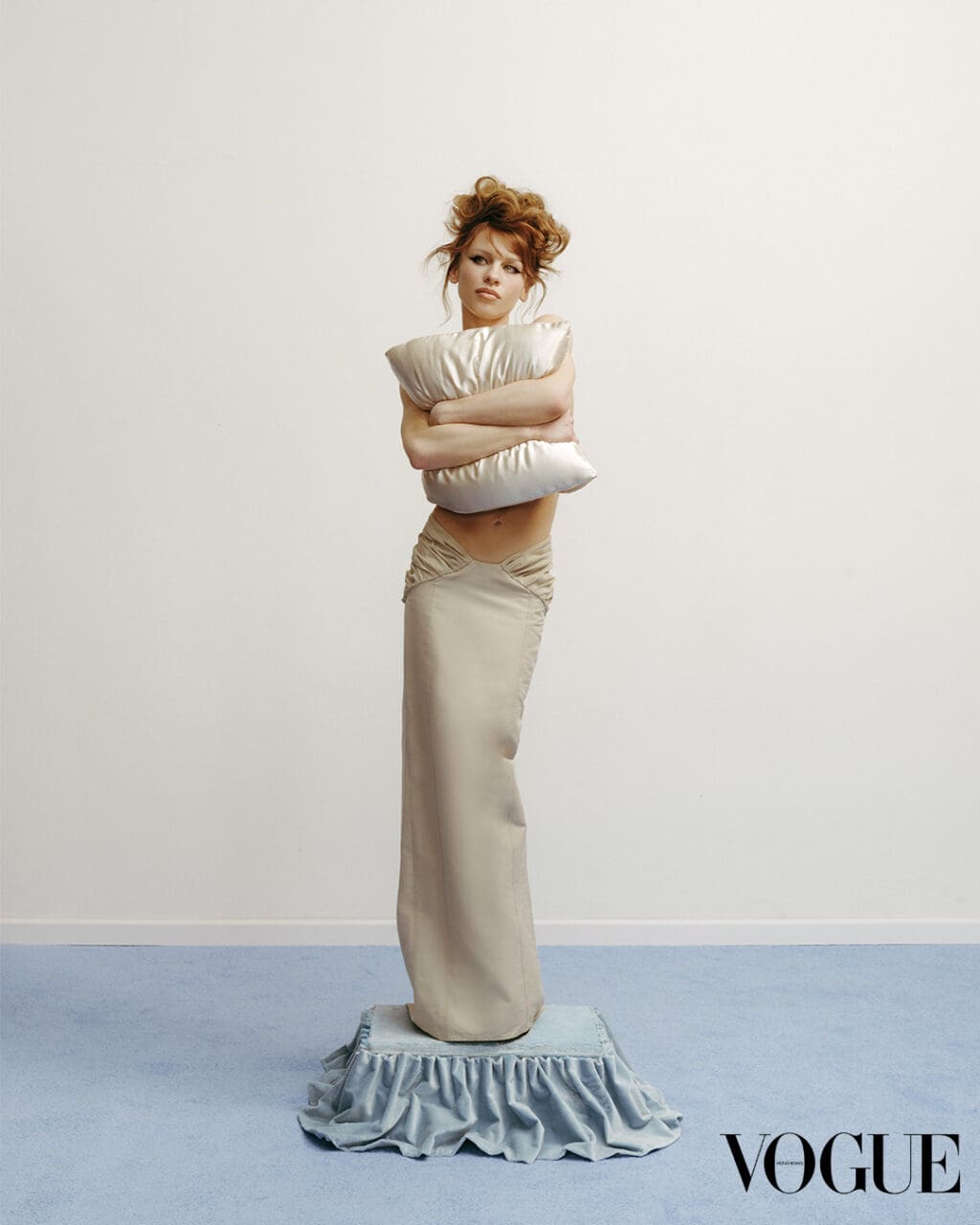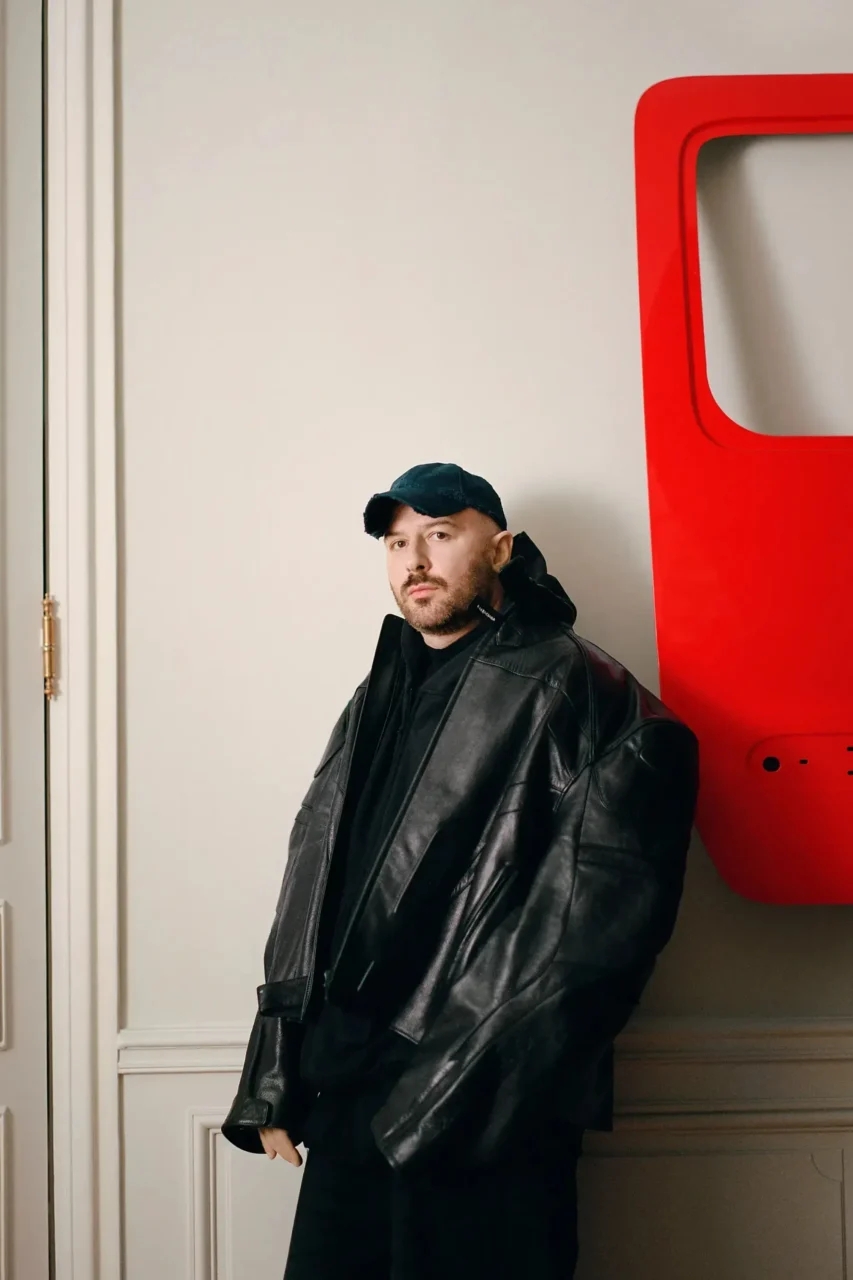“The Portland Trail Blazers. I prefer the underdogs to the big teams,” says SUGA when asked about his current interests. This is so like him. During our lively conversation, he reveals, for the first time, both his favorite team and his favorite player (Damian Lillard). “It’s the NBA season. This is what I live for these days,” he says with a laugh. SUGA’s face has never looked brighter. He looks relaxed and composed, exuding a sense of calm confidence, which has replaced a dark cloud of tension. I am reminded of the prevailing sense of resignation and transcendence inD-2 , a mixtape he released in May 2020.
“Resignation,” he echoes. “That’s right, I feel I’ve let it all go. Covid-19 is not something I can change through willpower. Now, I have a better idea of how much energy it takes to swim against the tide. And all this time, I’d lived my life trying so hard.” I couldn’t have put it better myself. SUGA looks relaxed and natural, not bored. I ask him what thoughts are occupying him these days. “Actually, I have no thoughts these days,” he says with a laugh. “It’s true. I’m too busy, and I try not to think about identity. If you obsess about it, you end up worrying too much. I think it’s perfectly fine to go with the flow, rather than constantly striving and struggling all the time.”
The last few years have been intense for him. “It’s not that I don’t try hard or that I work less hard. I think I’ve learned to come to terms with it more than when I was younger,” he reflects. Indeed, he has clearly gone through a change. The rapper Agust D, with his highly contagious pessimism and melancholy, is nowhere to be found. “My first mixtape was all about anger, but then everything was sorted out, right?” SUGA explains with a laugh. “I realized that I didn’t know who to be angry with anymore. Finally, I was able to look at myself. I’d been making a weapon out of anger and a sense of inferiority, but around 2018, my self-destructive rage slowly started to subside. I realised that I couldn’t channel creative energy through only those sorts of emotions any longer.”
Blazer, shirt, brooches, earrings and necklace, all Louis Vuitton.
It’s not that I don’t try hard or that I work less hard. I think I’ve learned to come to terms with it more than when I was younger.
Suga
It was around 2018 when SUGA’s second mixtape began to take shape. It was a musically mature album that was quite different from the first mixtape. “The recording was done on a tight schedule, in the last two or three months of 2020, but I’d started working on the beats and the basic groundwork right after the first mixtape came out, in 2016,” he explains. “After completing the track “People” around October 2016, I thought, ‘Oh! I’ve reached the stage where I can write a song like this.’”
When SUGA mentions “People,” my favorite song, I let out an in- voluntary sigh of joy. “People” is an insightful masterpiece that reveals how Yoongi Min (SUGA’s birth name) has developed as an individual. It reflects the most mature version of SUGA since his BTS debut. “People”feels all the more heart-wrenching as he narrates nonchalantly in a calm voice, “that’s how people are.” “‘People’ is my favorite song as well,” SUGA says. “Because it’s a record of four years of my life. I set aside most songs after they’re done, but I find myself relistening to ‘People’ all the time, and I experience different emotions each time I hear it. It’s a song I put on mostly when I’m feeling lonely and sentimental.”
If the main appeal of BTS is raw honesty, there is no doubt that SUGA contributes the lion’s share. It is the fate of the artist to have to use grief and gloom as grist for creativity, and that can’t always be easy, I tell him. SUGA’s response is whimsical and refreshing: “People seem to like my music.” The con- fidence in his small smile and his forthrightness, which is free of arrogance, is endearing. I ask if he has any songwriting routines or habits. “It depends on the song,” he replies. “Some songs flow right out, and some songs are such a struggle that I’ve wanted to throw in the towel. “Over the Horizon” is one song that flowed straight out. I finished the guitar and string parts in 20 minutes. When I get a request for a new song and they specify the theme and message, I can quickly draw the outline of a three-minute song. I can figure out the gist of it in a short time, and I build it from there. So, it’s like a sketch. I usually finish my sketches very quickly.”
Sweater, belt, skirt, pants, earring and sneakers, all Louis Vuitton.
The word “genius” comes to mind while listening to him, and I am certainly not the first person to think this. However, it can’t be easy for him to keep finding musical inspiration while being forced to live within the confines im- posed on him as a superstar music idol. “Inspiration strikes at random times — even in apparently absurd circumstances,” he says. One of the common misconceptions about artists is that their inspiration comes from outstanding or special circumstances. “There are times when I’m just sitting in a studio and suddenly feel, ‘I can do this,’” SUGA asserts. “Sometimes, I get my inspiration even when I’m least expecting it. It’s never like I’m consciously going to use this or that emotion at a certain time.” SUGA’s eyes sparkle, and his voice grows animated as he continues, “When good ideas come to me, I always write them down. Then I review them later, and occasionally find great inspiration. Looking at notes written who knows when and sometimes even wondering if they were written by me, I sometimes find something that makes me think, ‘Oh? This could be very interesting.’”
For artists, inspiration often comes from interaction. Take, for example, the Coldplay collaboration, which was surely BTS’ most important experience of late. The collab ended up being much more organic and congenial than most people had expected. “I was amazed when they offered to come to Korea,” SUGA recounts. “They said that when Coldplay does a collaboration, Chris Martin always comes in person to record. I was surprised that he was so keen.”
All this has been revealed in a behind-the-scenes documentary. Despite it being a meeting of two legendary groups, the hype was at a minimum, and the pure passion for music was evident. “All of them were humble, good-hearted, passionate and so very kind to us,” says SUGA. “I realized that our experience and what Coldplay has been through for nearly 25 years were not so very dif- ferent. The conversation took off as we compared our struggles.” A flicker of emotion crosses SUGA’s face as he describes the moment he realized that the struggles of a rock band and a boy band are the same.
“When I meet a star, I can tell whether they’re being sincere or not, and Coldplay were so sincere that we were deeply moved by them,” SUGA gushes. In the world of top-level achievers, learning often occurs through interacting with other people, noticing their personalities or attitudes, rather than hands- on learning of new technical skills. I ask SUGA if he got any insights or tips from the veterans. With a laugh, he says, “We did a lot of melody dubbing while recording the rap sections, and their reactions were fantastic. You could feel it in the recording booth. When having a vocal directing session, I tend to be fairly straight-faced, without showing my reactions, as if I were missing half my soul. But it made me think that taking Coldplay’s approach might be a better way to bring out an artist’s potential.”
What has SUGA, who seems to have done it all, gained and lost in the past eight years? “I think I’m happier now,” he confides. “I’ve realized that happiness doesn’t require much, and it can be quite simple. I used to think material things would give me happiness, and I worked hard to achieve them. But when I succeeded, I wasn’t so sure anymore. I don’t have many earthly desires anyway,” he says with a laugh. “Perhaps it’s because I now know that material things no longer give me great satisfaction. So now, I try to find happiness in simple things, such as getting up early in the morning and having decaf coffee. I’m glad I’ve finally got to experience this kind of joy. What I lost would be being ordinary. Your ordinary is my extraordinary, right? But I think time will solve this issue.” I am not sure why exactly, but I am pleased to hear this.
I ask what his next move will be now that he has learned the value of being ordinary. I am half expecting him to say that he will go on to become a full-fledged producer, but he gives an answer that is both unexpected and obvi- ous: “I’ll always be a member of BTS. People have suggested I should become a full-time producer, but I don’t think I will. I’m not responsible enough to take responsibility for anyone. I like being part of BTS.”
SUGA adds that this is the longest he has been in Korea since his debut, and that he is enjoying the perks of a daily routine rather than the excitement of globe-trotting. When the time comes to say goodbye to Yoongi Min, I ask some- thing I have been holding back. “A Grammy?” he replies. “I have both a humble and a confident reply. Which one would you like? I honestly don’t expect we’ll win, but I think we will!” Yes, “Minstradamus” has never been wrong.
Photography: Wontae Go
Editor: Narang Kim
Stylist: Hajung Lee
Hair Stylist: Heungkwon Baek
Makeup Artist: Sino Choi
Translation: Cary Man
Click here to subscribe ebooks from Magzster and hard copies.
Editor
Youngdae Kim